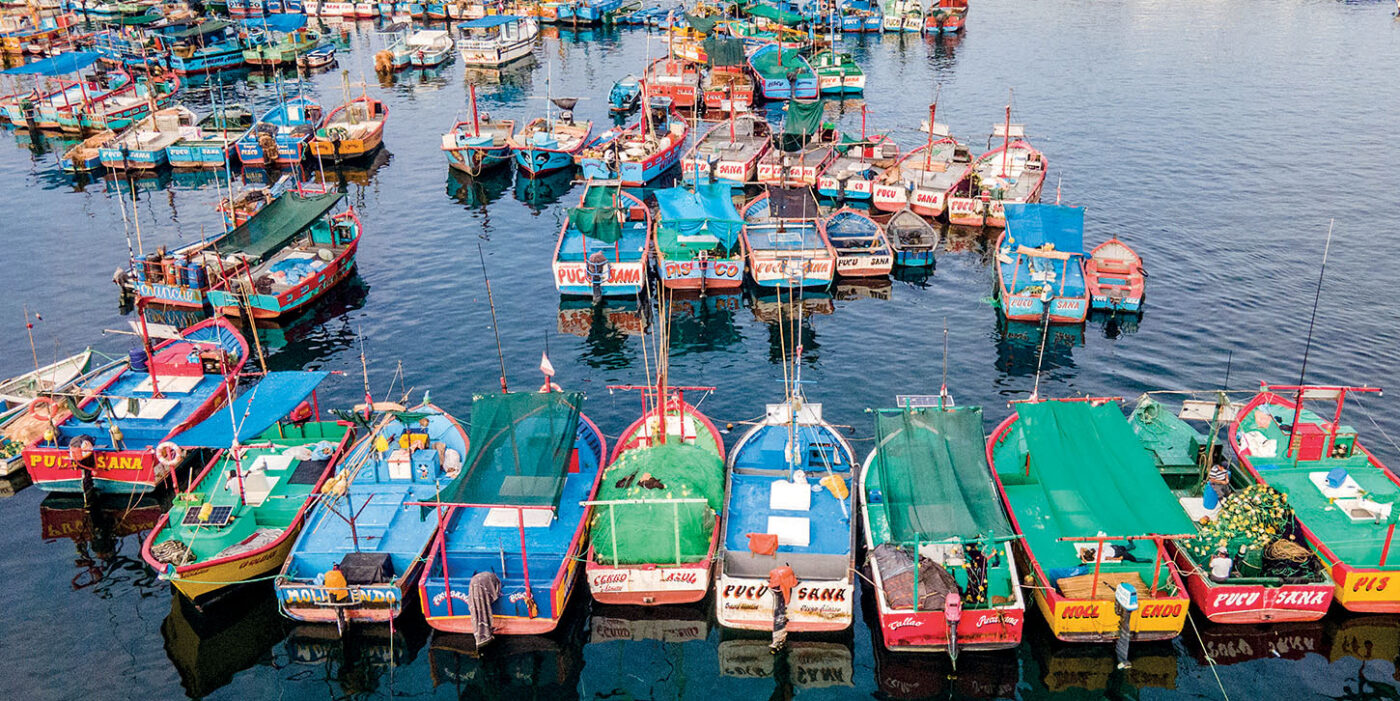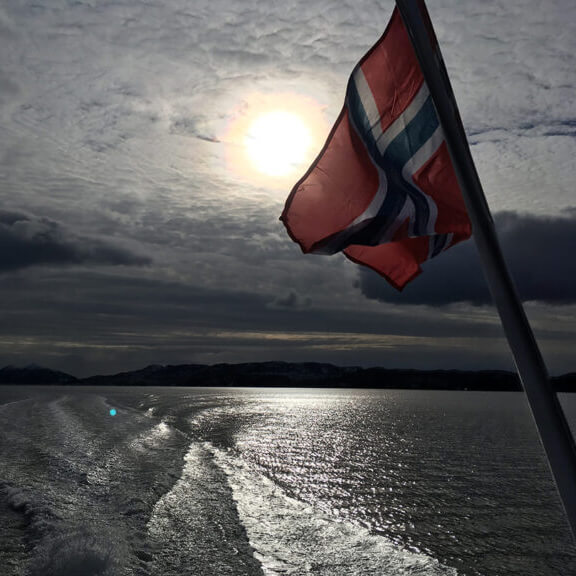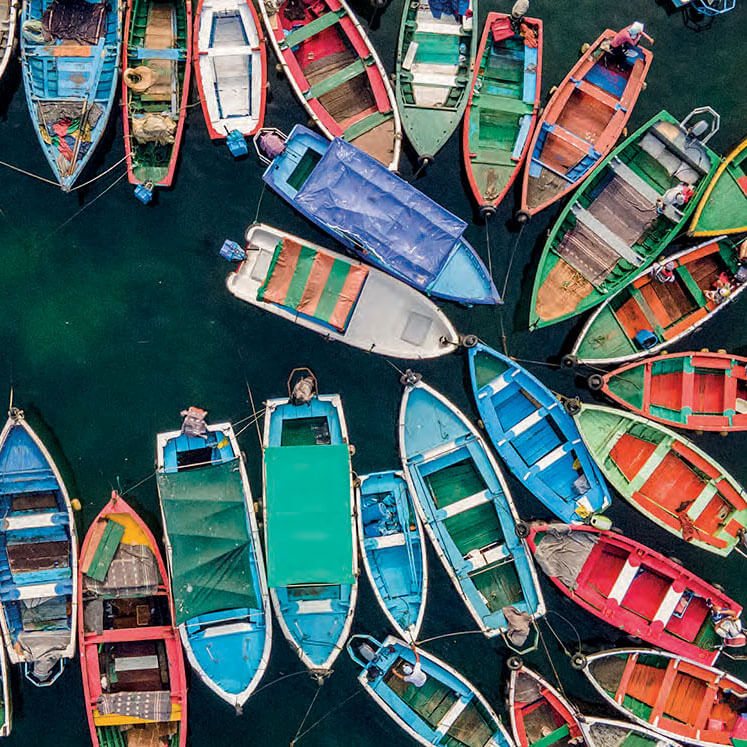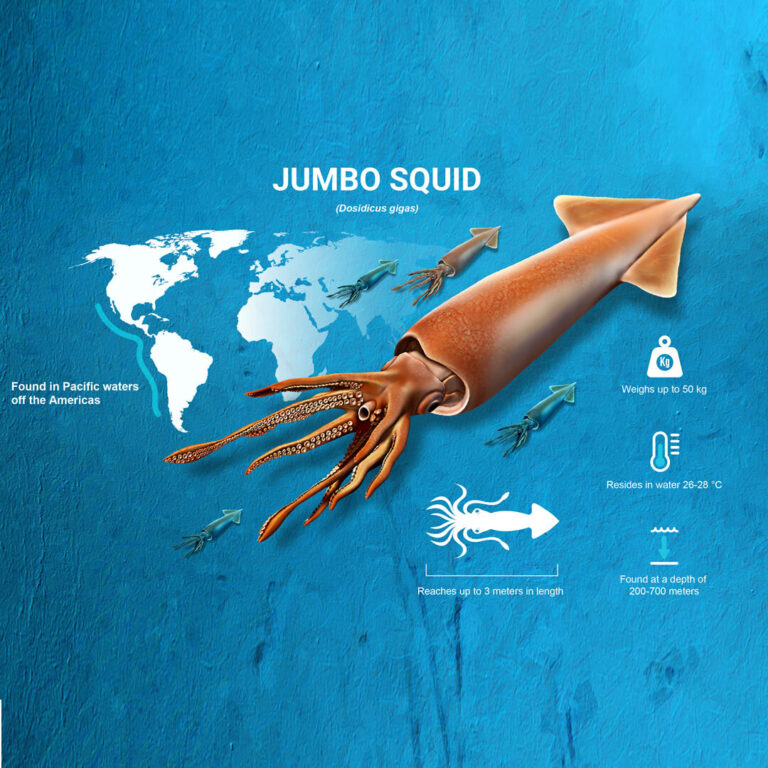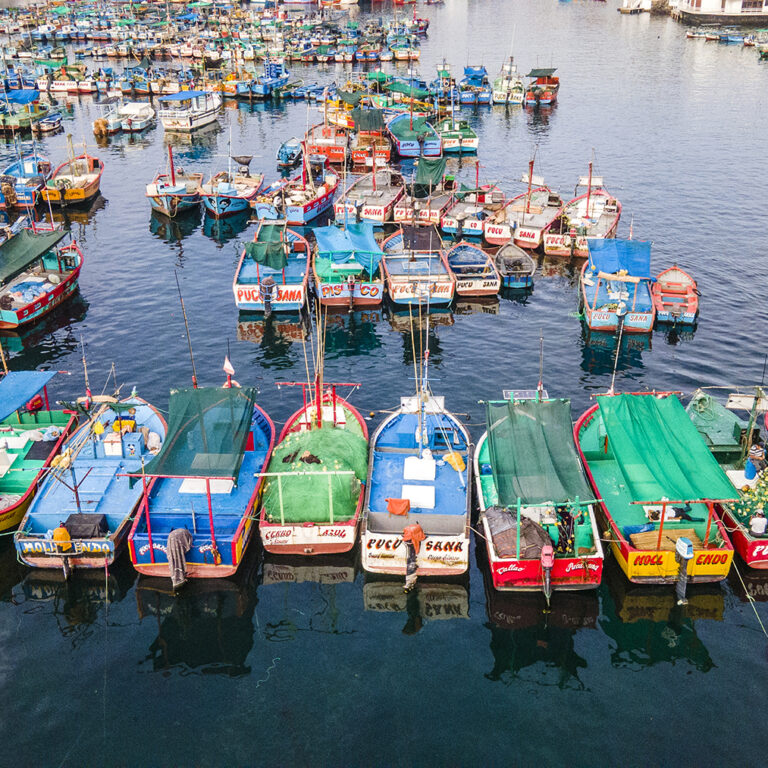Transparency
Transparency is crucial for good stewardship of our global ocean—to fight illegal fishing, to protect fish stocks and livelihoods, and to increase the safety and well-being of fishers. We are committed to promoting international cooperation and transparency around ocean data towards a new era of ocean governance.
About our Transparency Program
Despite its importance, the ocean remains the least observed part of our planet. Without a global picture of our activity at sea, we cannot truly understand the impact humans have on life below water. This lack of visibility is compounded by a patchwork of regulations in fisheries management and fosters an environment where illegal, unreported and unregulated fishing can thrive.
At Global Fishing Watch, we believe that improved governance can only happen through increased transparency, from open-access vessel identification to public tracking of vessel activity. Our vision is a healthy, productive and resilient ocean where transparency of information enables the fair and sustainable use of our ocean. Advances in machine learning and satellite technology are rapidly transforming our ability to generate new insights. We seek to make this information readily available to those who need it so that every fisheries scientist, management agency and policymaker around the world can harness data and technology to help safeguard the global ocean commons.
Using cutting-edge data analysis, Global Fishing Watch is helping governments and maritime security agencies strengthen their methods of monitoring and control and enabling countries to meet their sustainability goals. Countries can benefit from transparency by making the following vessel information publicly available:
Tracking – All vessels should be publicly trackable using automatic identification systems, vessel monitoring systems, or any other viable system.
Identification – All vessels should be allocated with a unique vessel identifier that follows a vessel from construction to scrapping
Registration – Public vessel registers should be maintained with up-to-date authorization details and all relevant data should be submitted to the Food and Agriculture Organization’s Global Record of Fishing Vessels, Refrigerated Transport Vessels and Supply Vessels.
Authorization – Authorizations to fish and transship catch should be made public and readily available to ensure decision makers can validate vessels quickly and effectively.
Compliance – Vessels that have been identified as engaged in illegal, unreported or unregulated activity should be listed publicly.
Data-sharing initiative
Global Fishing Watch primarily uses publicly broadcast automatic identification system, or AIS, data to track fishing vessel movements. While AIS is required for industrial-sized vessels (more than 300 gross tonnes) that are responsible for the majority of the global catch, adding vessel monitoring system (VMS) data, which is now required by many governments, can provide an even clearer view of what is taking place across the ocean.
Global Fishing Watch is committed to bringing countries from around the globe into our transparency program to advance responsible fisheries management. We are working with governments to publish their vessel monitoring system data to our platform to strengthen monitoring and support enforcement. We encourage governments to publish their authorized vessel lists and transshipment authorizations and to require the use of unique vessel identifiers, such as the IMO number.
Making vessel activity publicly trackable is a critical step for countries that are committed to achieving greater transparency in fisheries. When countries share their vessel data on the Global Fishing Watch map, we can create a more complete and connected picture of global fishing activity.
commits to sharing VMS data
publishes VMS data
publishes VMS data
commits to sharing VMS data
commits to sharing VMS data
publishes VMS data
Learn more »
publishes VMS data
Learn more »
publishes VMS data
Learn more »
publishes VMS data
Learn more »
publishes VMS data
Learn more »
publishes VMS data
Learn more »
publishes VMS data
Learn more »
becomes first country to publicly share VMS data Learn more »
Each year, the Our Ocean Conference provides a key forum for governments, businesses and civil society to discuss some of the most significant threats facing the ocean.
Marine protected areas
Sustainable blue economies
Climate
change
Marine
security
Sustainable fisheries
Marine
pollution
This year, our delegation seeks to engage closely with other conference attendees to facilitate and promote discussion on the increasing importance of technology and open data in ocean governance. Alongside the Government of Greece and the Athanasios C. Laskaridis Charitable Foundation, we will host a side event titled “Technology for Good: How Innovation and Open Data Can Deliver Ocean Action.” Convening voices from Africa, Europe and Latin America, we seek to demonstrate how technology and innovation are being harnessed to bring about real change on the water—and how collaboration and commitment are propelling a wave of momentum.
Norway: Promoting Ocean Transparency
Our collaboration with Norway formally began in May 2022 when the Directorate of Fisheries agreed to publish fishing data for its large vessels on the Global Fishing Watch map. With this decision, Norway reinforced its commitment to transparency, reflecting its desire to make all government data publicly available wherever possible.
Sustainability Through Transparency
Covering more than two-thirds of the Earth’s surface, the ocean provides essential nutrition to billions of people and sustains a global economy that is valued in excess of $1 trillion. Home to huge reservoirs of biodiversity, the ocean connects us through commerce, policy, heritage and community.
The Search for Squid
The waters off South America are home to one of the most lucrative fisheries: the jumbo squid. Sustainable management of squid fisheries depends on effective vessel monitoring. Global Fishing Watch uses cutting-edge technology to analyze this fishery and enhance monitoring, control and surveillance efforts in the region.
Transparency in Focus
Thanks to the commitment and combined support from government champions, industry leaders and academia, in just a few years, data transparency has become the gold standard across fisheries in one of the most productive and biodiverse waters in the world: Peru. Discover more in our new project Transparency in Focus.
Recent Work
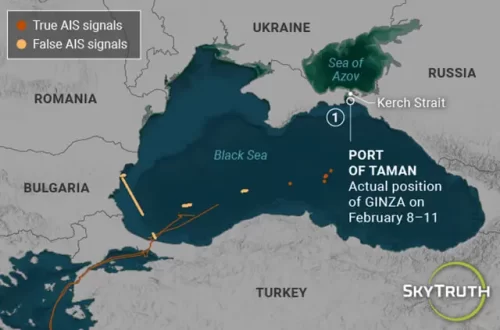
Tankers Falsify AIS Tracking Positions to Hide Entry into Russian Black Sea Ports
This article was originally published by SkyTruth on May 31, 2023.
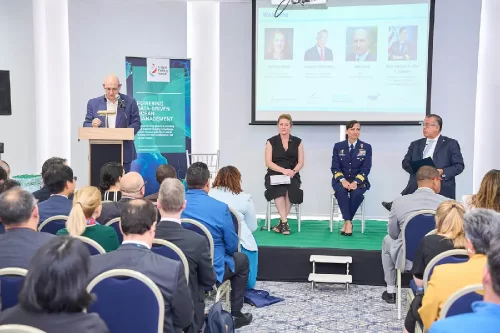
Government, Industry and Civil Society Identify Three Ways to Drive Fisheries Transparency
Global Fishing Watch and Panama co-host transparency workshop ahead of Our Ocean Conference, bringing together over 80 thought leaders from around the globe to discuss challenges of transparency in ocean governance
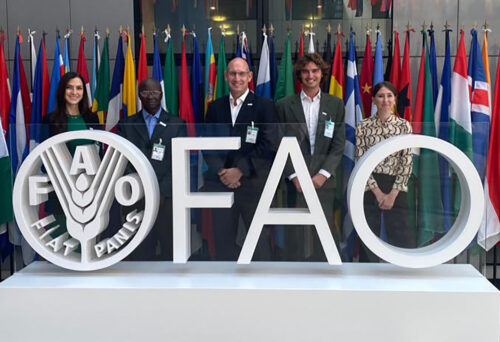
Transparency Can Bring Forward Outcomes of International Fisheries Meeting
Committee on fisheries advances transshipment monitoring, vessel identification and tracking to fight illegal fishing International fisheries are managed through a patchwork of regulations, which present loopholes that are often exploited for financial gain, undermining collective
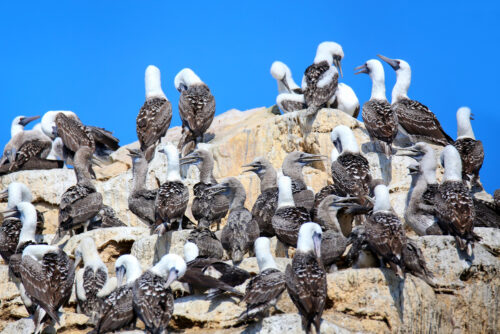
Seabirds: An Unexpected Ally in Fisheries Monitoring
An innovative research project allows scientists to see through the eyes of seabirds to understand interactions with the Peruvian anchovy fishing fleet On any given day, you can find a wreck of seabirds
